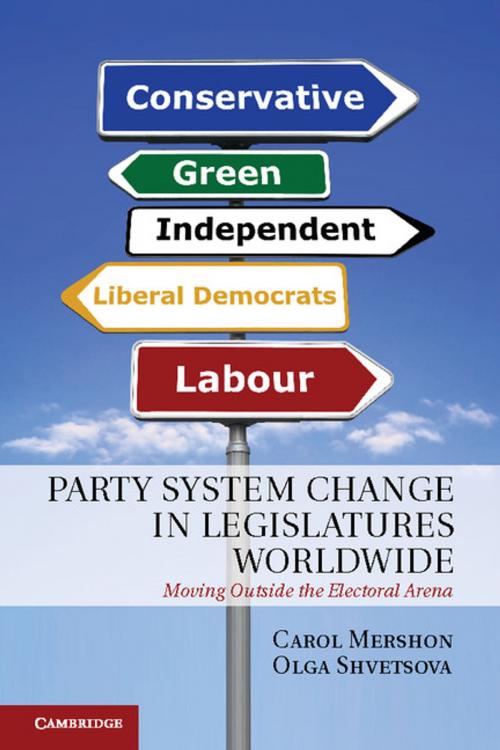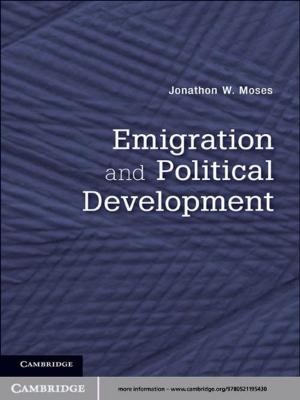Party System Change in Legislatures Worldwide
Moving Outside the Electoral Arena
Nonfiction, Social & Cultural Studies, Political Science, International, Foreign Legal Systems, Business & Finance| Author: | Carol Mershon, Olga Shvetsova | ISBN: | 9781107240919 |
| Publisher: | Cambridge University Press | Publication: | October 7, 2013 |
| Imprint: | Cambridge University Press | Language: | English |
| Author: | Carol Mershon, Olga Shvetsova |
| ISBN: | 9781107240919 |
| Publisher: | Cambridge University Press |
| Publication: | October 7, 2013 |
| Imprint: | Cambridge University Press |
| Language: | English |
In this book, Carol Mershon and Olga Shvetsova explore one of the central questions in democratic politics: how much autonomy do elected politicians have to shape and reshape the party system on their own, without the direct involvement of voters in elections? Mershon and Shvetsova's theory focuses on the choices of party membership made by legislators while serving in office. It identifies the inducements and impediments to legislators' changes of partisan affiliation, and integrates strategic and institutional approaches to the study of parties and party systems. With empirical analyses comparing nine countries that differ in electoral laws, territorial governance and executive-legislative relations, Mershon and Shvetsova find that strategic incumbents have the capacity to reconfigure the party system as established in elections. Representatives are motivated to bring about change by opportunities arising during the parliamentary term, and are deterred from doing so by the elemental democratic practice of elections.
In this book, Carol Mershon and Olga Shvetsova explore one of the central questions in democratic politics: how much autonomy do elected politicians have to shape and reshape the party system on their own, without the direct involvement of voters in elections? Mershon and Shvetsova's theory focuses on the choices of party membership made by legislators while serving in office. It identifies the inducements and impediments to legislators' changes of partisan affiliation, and integrates strategic and institutional approaches to the study of parties and party systems. With empirical analyses comparing nine countries that differ in electoral laws, territorial governance and executive-legislative relations, Mershon and Shvetsova find that strategic incumbents have the capacity to reconfigure the party system as established in elections. Representatives are motivated to bring about change by opportunities arising during the parliamentary term, and are deterred from doing so by the elemental democratic practice of elections.















